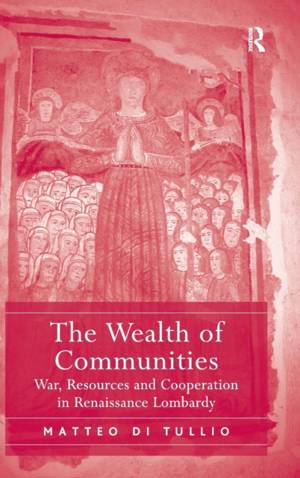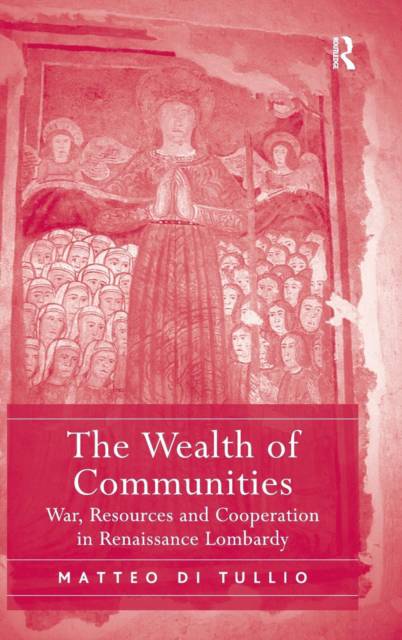
- Retrait gratuit dans votre magasin Club
- 7.000.000 titres dans notre catalogue
- Payer en toute sécurité
- Toujours un magasin près de chez vous
- Retrait gratuit dans votre magasin Club
- 7.000.0000 titres dans notre catalogue
- Payer en toute sécurité
- Toujours un magasin près de chez vous
The Wealth of Communities
War, Resources and Cooperation in Renaissance Lombardy
Matteo Di Tullio
Livre relié | Anglais
190,95 €
+ 381 points
Description
The early decades of the sixteenth century were a turbulent time for the Italian peninsula as competing centres of power struggled for political control. Nowhere was this more true than the area contested by Milan and Venice, that was constantly crossed and occupied by rival armies. Investigating the impact of successive crises upon the inhabitants of the Po Valley, this book challenges many fundamental assumptions about the relationship between war and economic development and draws conclusion that have implications for early modern Europe as a whole. In traditional historiography, periods of war and general crisis have often been regarded as promoting a shift in resources from the communal towards a small number of individuals. However, through a close micro-study of a single region, this book offers a different perspective. Rather than promoting an aggressive individualism, it is argued that in times of general crisis, social networks aimed to reproduce themselves and the original status quo by developing creative solutions and institutions favouring co-operation. Furthermore the elites could not always exploit 'local' wealth because of the need to protect their position of leadership within the community, which required the preservation of that very community. This thesis not only challenges the received wisdom, but also fuels a new debate about the ways in which economic growth occurred in Early Modern Italy and Europe.
Spécifications
Parties prenantes
- Auteur(s) :
- Editeur:
Contenu
- Nombre de pages :
- 234
- Langue:
- Anglais
Caractéristiques
- EAN:
- 9781472442468
- Date de parution :
- 05-12-14
- Format:
- Livre relié
- Format numérique:
- Genaaid
- Dimensions :
- 156 mm x 234 mm
- Poids :
- 508 g

Les avis
Nous publions uniquement les avis qui respectent les conditions requises. Consultez nos conditions pour les avis.






